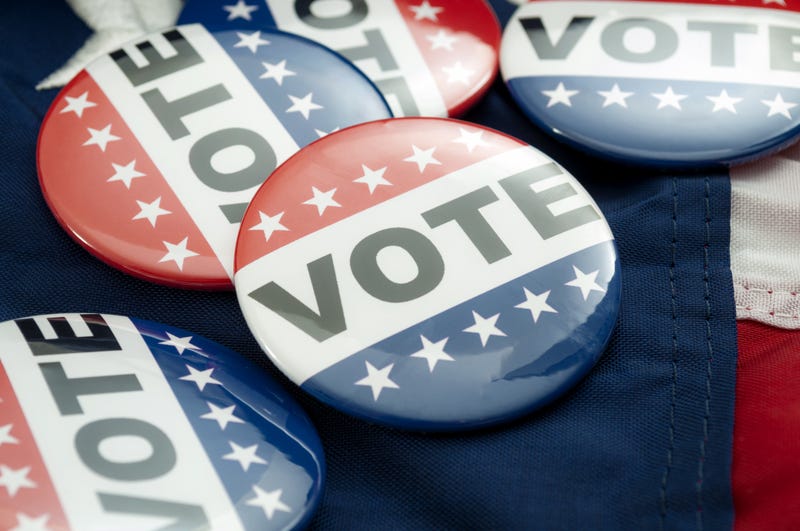
Long seen as a 2020 battleground in the presidential election, Minnesota’s three congressional races are expected to be tightly contested.
In the first part of WCCO’s Behind the Ballot series, Sloane Martin breaks down the race to represent the first congressional district in southern Minnesota:
In 2018 it was the closest U.S. House race. Incumbent Republican Rep. Jim Hagedorn and DFL challenger Dan Feehan are back for a rematch.
Hagedorn succeeded Tim Walz after he ran for governor, turning the district red for the first time since 2006.
Feehan came up just 1,300 votes short two years ago -- a margin of 0.45 percent. In the election before that, Walz narrowly beat Hagedorn by just 3,500 votes.
It’s expected to be close for the third election cycle in a row.
“There’s no doubt there’s going to be Trump voters all over Minnesota including the First that will stick with the president, stick with Republicans, but when you have that 5 to 10 percent who are undecided, where you’ve got those Democrats who turn out for some elections but not others, this kind of environment which is so polarized, in which there’s so much intensity, will have a tilt that favors the Democrats. Given how close the 2018 race was, it just may be enough to tip the race away from Hagedorn,” University of Minnesota political scientist Larry Jacobs said.
Jacobs said it was smart for the DFL to go back to Feehan considering how close the race was, as well as the time invested in him as a candidate. Feehan picked up an endorsement from the Star Tribune editorial board, which wrote he’s “an even stronger candidate in 2020,” citing his “calls for thoughtfully building on the Affordable Care Act to broaden access to coverage,” during the pandemic.
During the Fluence Forum with Blois Olson on WCCO, Feehan said affordable health care, with a buy-in public option or lowering the age of Medicare are focal points of his, as is raising reimbursement rates.
“The underinsured or uninsured in southern Minnesota have a chance to seek preventative care in a way that they simply choose not to simply because of costs right now,” Feehan said. “That’s where it helps out hospitals and clinics here, especially our rural ones. They need more business. They need to see more patients. If patients are more insured then they have a chance to actually seek that care, but that only matters as much as the reimbursement rates that come with it.”
About healthcare, Hagedorn, who was diagnosed with advanced stage kidney cancer in 2019, said the system needs competition to drive down costs and supports “association grants” and “high-risk pools.”
“What the Democrats have in store if they get elected whether it’s Biden/Harris, Dan Feehan. (Nancy) Pelosi, it doesn’t matter, they’re moving towards more government, and more government reimbursement versus more private insurance reimbursement and that’s going to put half of our rural hospitals out of work, will make them go broke, according to the studies,” Hagedorn said. “It will certainly undermine the model of medicine that we have in Rochester with the Mayo Clinic.”
Healthcare and agriculture are always major topics in the First Congressional District, but Jacobs said national issues of COVID-19 response and public safety/police reform are huge in every race.
During the Fluence Forum, Hagedorn said he’s concerned about the morale of police officers.
“Do we want a society in which we have equality, where people are treated fairly? Of course,” Hagedorn said. “The incidents with police are few and far between. When they happen, people should be prosecuted, people should be brought to justice. But to say that we should be defending police, undermining police and not respecting them and going out and rioting, that’s unacceptable.”
On the topic of the pandemic, Feehan supports a national strategy to test, trace and share resources.
“A National strategy means you are directing adequate resources to where they need to be,” Feehan said. “There is no state that can provide adequate resources for themselves, and frankly, as long as there’s one state not doing as well as the others, we’re going to continue to have problems.”
Both candidates have exchanged barbs about ethics.
Hagedorn was accused of funnelling $450,000 taxpayer dollars for mailers to companies owned by his chief of staff’s brother and a member of his staff. Hagedorn says he immediately acted when he found out and also denied a Politico report of a rent-free campaign office, which Hagedorn said is a PO box. Feehan is accused of collecting half a million dollars from Democratic organizations to run, rather than for employment. Feehan denied the accusation.
The president won the first district in 2016 by a 53 to 38 percentage point margin and Jacobs, the political scientist, said voters will have the president in mind at the polls.
“When you have an incumbent president it’s a referendum on that president, and everyone else on the Republican ticket is going to be facing the same sort of judgement by voters,” he said.
Tuesday in our Behind the Ballot series, Susie Jones reports on the fight for the suburbs.
